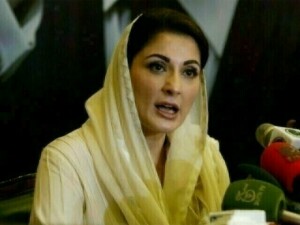The Pak-China relationship does not fit in with the pattern of standard ties between two states; this is a friendship that is time-tested, has weathered many storms and comes into full play when either of the two is confronted with difficult challenges.
Not surprisingly, President Asif Ali Zardari undertook his maiden state visit to China to seek help to ward off the ubiquitous uncertainty that besets Pakistan's economy in the wake of global financial crisis. The high points of his four-day state visit included his meetings with President Hu Jintao, Chairman of the National Committee of National People's Party and Prime Minister Wen Jiabao. He also held discourses with the leaders of Chinese corporations and financial institutions.
The joint statement issued at the end of the visit describes the meetings as "characterised by traditional warmth, friendship and mutual understanding". The two sides reached "broad agreement on strengthening Pakistan-China strategic co-operation and on international and regional issues of mutual interest under the new circumstances". Highlighting the durability of the relationship, the joint statement recalls how it has withstood the "test of time and practice" over the 57 years of its existence, "notwithstanding changes in the international, regional and domestic environments".
Both sides also agreed to abide by the policies and principles embodied in the Treaty of Friendship, Cooperation and Good Neighbourly Relations, which if earnestly implemented would enhance the existing co-operation in various areas, including economy, defence, science and technology and people-to-people contacts. According to the joint statement, China stressed that Pakistan is its "good neighbour, close friend, dear brother and trusted partner" and it would continue to view the bilateral relationship from a "strategic and long-term perspective" to lift it to "new high". A reflection of these sentiments is clearly visible in a dozen agreements and MOUs the two sides signed during the visit of President Asif Ali Zaradri.
Of course, specifics in terms of financial assistance and nuclear technology co-operation on the pattern of the much-touted US-India agreement have not been made available. Hype was unnecessarily lent to these two issues in some circles. China has promised financial help to enable Pakistan to cope with financial difficulties. "We are ready to support and help Pakistan within our capability", the Chinese foreign ministry spokesman told the media after the meeting President Zardari had with the Chinese premier. With foreign exchange reserves exceeding 1.9 trillion dollars, China has the capability to help Pakistan overcome its financial crunch, but the figures have not been quoted - though the burden of the joint statement appears to be heavily tilted in favour of 'handsome relief'.
The expectation that China would follow suit on US-India nuclear agreement is childish. That deal is in clear violation of the Nuclear Non-Proliferation Treaty (NPT) that forms the bedrock for the entire non-proliferation international regime and China would not commit the same crime. Here we must not forget it is China, and China alone, which helped Pakistan, put up the 325 MW nuclear power plant at Chashma. The second one of the same capacity is being installed and China is ready to supply more such plants. One of the agreements signed during President Zaradari's visit also promises Chinese assistance in helping Pakistan develop its non-nuclear energy potential.
The fact is that the joint statement goes much beyond the normal diplomatic niceties. It tends to open the Chinese door much wider for Pakistan as the country struggles to keep its head above the troubled waters. It is for the Pakistani bureaucracy to show its acumen by making use of the Chinese offer, and the foremost task in that direction is to ensure the safety of Chinese workers in Pakistan - or at least try to figure out who is trying to keep China out of Pakistan.
BR100
12,215
Decreased By
-29.5 (-0.24%)
BR30
37,439
Increased By
64.4 (0.17%)
KSE100
115,536
Increased By
441.9 (0.38%)
KSE30
35,658
Increased By
47 (0.13%)





















Comments
Comments are closed.